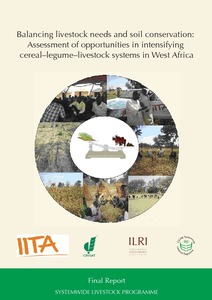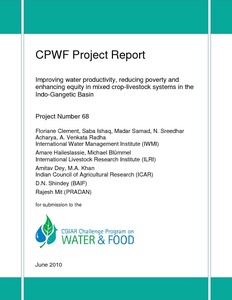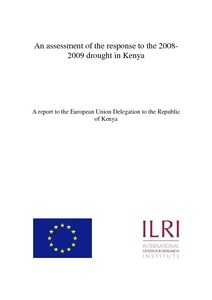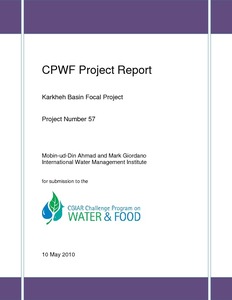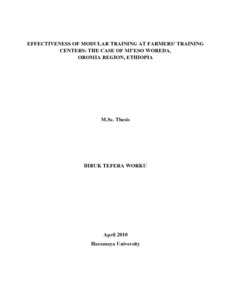Development of the world’s first insurance for African pastoralist herders
Improving water productivity, reducing poverty and enhancing equity in mixed crop-livestock systems in the Indo-Gangetic Basin
The “Improving water productivity, reducing poverty and enhancing equity in mixed crop-livestock systems in the Indo-Gangetic Basin”
was designed and conducted by the International Water Management Institute (IWMI),
in partnership with international and national partners, to address the relative neglect of
livestock water needs of crop-livestock farming systems.
Minutes of the 1st Uganda Livestock Data Stakeholder Workshop, Kampala, Uganda, 20 May 2010
Ordonnance N°2010-29 du 20 mai 2010 relative au pastoralisme.
La présente ordonnance (qui complète celle n°93-015 du 2 mars 1993 portant principes d’orientation du code rural) définit et précise les principes fondamentaux et les règles régissant le pastoralisme au Niger.Cette ordonnance consacre la mobilité des éleveurs, pasteurs nomades et transhumants comme un droit fondamental reconnu et garanti par l’Etat et les collectivités territoriales.
Contribution of informal shallow groundwater irrigation to livelihoods security and poverty reduction in the White Volta Basin (WVB): Current status and future sustainability
Shallow groundwater irrigation (SGI) using hand-dug shallow wells and dugouts is expanding, in the WVB, and is becoming attractive to farmers throughout. SGI is farmer-driven and has
developed without any government or donor involvement. The production of vegetables and cash
crops during the dry season utilizing SGI has provided farmers with a supplemental source of
An assessment of the response to the 2008 2009 drought in Kenya
Karkheh Basin Focal Project
The Karkheh Basin Focal Project was designed to collect and organize baseline information
for future researchers and to highlight future research needs. All collected data is available
in the IDIS system. The specific research findings and recommendations for the basin are
1) The use of non-agricultural water measures is likely to be a more effective solution to
Mapping risk and vulnerability hotspots in the COMESA region
Herd management and breeding practices of sheep owners in a mixed crop-livestock and a pastoral system of Ethiopia
An exploratory survey was undertaken to understand sheep production system, breeding practices and selection criteria for Ethiopian Menz and Afar sheep breeds in their home tract as a step towards developing sustainable sheep breeding strategies. The mean sheep flock size was 31.6 in Menz and 23.0 in Afar area.
Using rangelands to sequester carbon
Carbon sequestration is complicated but important at global scales.
Effectiveness of modular training at farmers’ training centers: The case of Mieso Woreda, Oromia Region, Ethiopia
In order to bring a realistic transformation in Ethiopian agriculture, farmers need to improve their knowledge, skill and attitude & have access to information and technologies, markets etc. Currently, Farmers Training Centres are designed to provide services of extension, trainings, demonstration, information, advice, etc at grassroots level.

